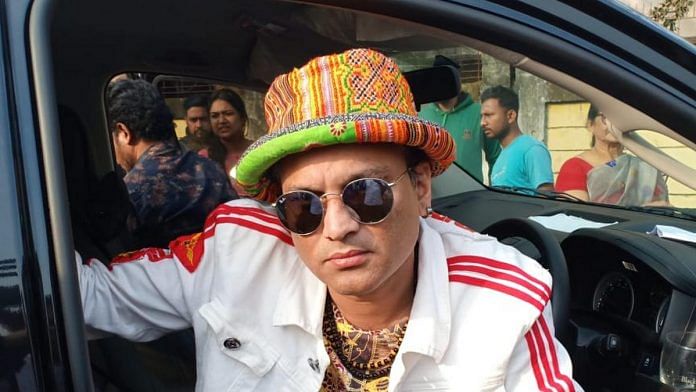Guwahati: Zubeen Garg, arguably Assam’s most popular singer who has become the face of the anti-citizenship Act protests in the state, Sunday hit out at Prime Minister Narendra Modi and Home Minister Amit Shah, saying Assam cannot be treated as a “dustbin”.
Speaking to ThePrint on the sidelines of a massive protest he led in Guwahati, Garg said the people of the state no longer believe any assurances from Modi and Shah.
“The problem is that they (Modi and Shah) don’t understand us. The Northeast is very different from the other states of India,” Garg said. “They will have to understand. They think we are dustbins.”
Told that both Modi and Shah have given assurances that Assam’s identity and culture will not be affected, he said, “We don’t trust them.”
Garg added, “Assam gives the country petrol, tea and coal. We give so much to the country. But what do we get in return?”
Asked what is Assam’s basic demand, he said, “We don’t want the citizenship Act. We don’t want refugees here. We already have over one crore refugees here.”
He, however, distanced himself from the violence that took place on the streets of the Guwahati, saying it was done by a “third party”.
Also read: Have arrested 85 protesters & detained 2,000, more being identified via videos: Assam DGP
‘Peaceful protests the way forward’
Garg said the way forward was peaceful protests and it would continue in the coming days. He also underlined that it was not a Hindu-Muslim issue in Assam.
“All of us are getting together. This is not a Hindu-Muslim issue but an issue of Assamese,” he said. “We have all lived together for years. We are against illegal outsiders.”
The ethnic Assamese have held a long-standing resentment towards the ‘outsider’ — irrespective of ethnicity, religion or citizenship.
There are fears that the new law will segregate the 19-odd lakh people left out of the National Register Citizen (NRC) into Hindu and Muslim refugees, promising to grant citizenship to the former, which is incompatible with the demands of the state.
Assam has, in the past, seen mass agitation against ‘illegal’ immigrants that began in 1979 and ended with the signing of the Assam Accord in 1985.
The years that followed saw insurgency at its peak, with the United Liberation Front of Assam (ULFA) leading a violent movement against the influx of ‘outsiders’ – the Bengali-, Hindi- as well as Bihari-speaking people.
Also read: NIA arrests RTI activist Akhil Gogoi amid Assam unrest, charges him under amended UAPA




It would have been wonderful – that is my idea of India – if the country had developed faster economically and the north east had participated / benefited more fully from that process. While culture and language are precious and need to be preserved and nurtured, perhaps the economic dimension of this aversion to “ outsiders “ would have been more muted. However, that is in the realm of wishful thinking. There is a certain reality in the north east. Ms Patricia Mukhim has said in a recent column that emotional integration has not taken place with the rest of the country. Given these verities, more foresight and sensitivity were expected. For that matter, Kannadigas don’t like to see Hindi signage. Slow, gradual processes of integration and assimilation over decades can sometimes be suddenly reversed by hasty interventions.
Only Muslim will speak like this to their leader well we don’t want you suwar